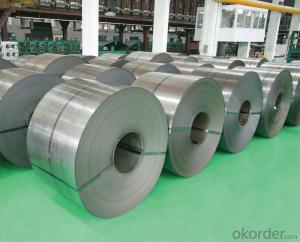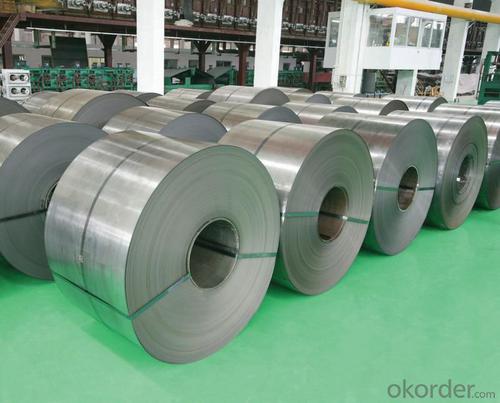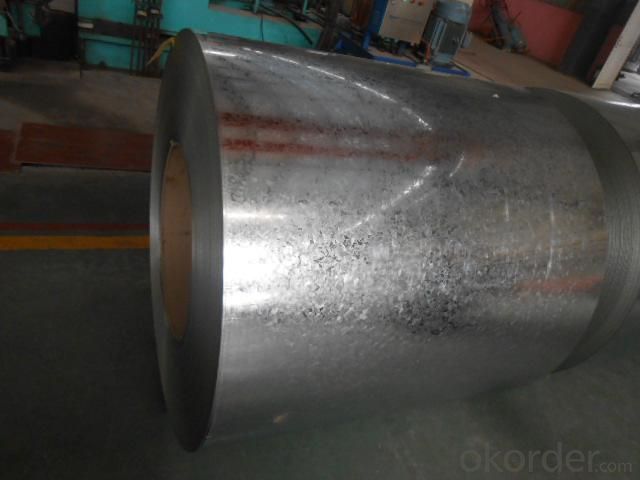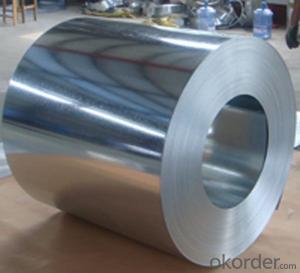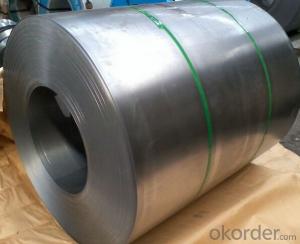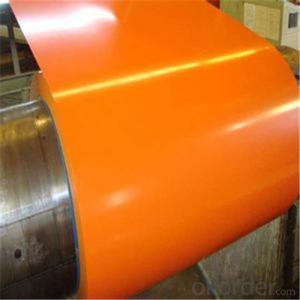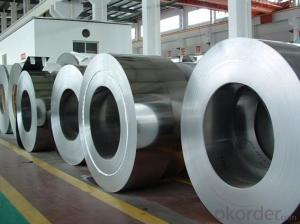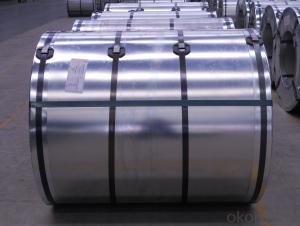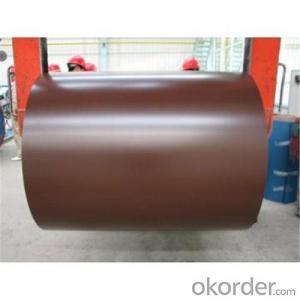Cold Rolled Steel Coil with First Class Quality and Best Qaulity
- Loading Port:
- Shanghai
- Payment Terms:
- TT OR LC
- Min Order Qty:
- 500 m.t.
- Supply Capability:
- 20000 m.t./month
OKorder Service Pledge
OKorder Financial Service
You Might Also Like
1.Structure of Cold Rolled Steel Description:
The raw material of cold rolled steel coil/sheet is high quality hot rolled product, and after pickling continuous rolling, degreasing, annealing,skin pass,slitting and cut to length line etc. Along with it many kinds of new technology and new process of global cold rolling production have been applied. Therefore the quality of the goods could be guaranteed. The product is widely used in outdoor and interior decoration, furnishing manufacturing, home appliance, automobile etc.
2.Main Features of the Cold Rolled Steel:
• Excellent process capability
• Smooth and flat surface
• Workability, durability
• Excellent heat resistance performance
• High strength
• Good formability
• Good visual effect
3.Cold Rolled Steel Images
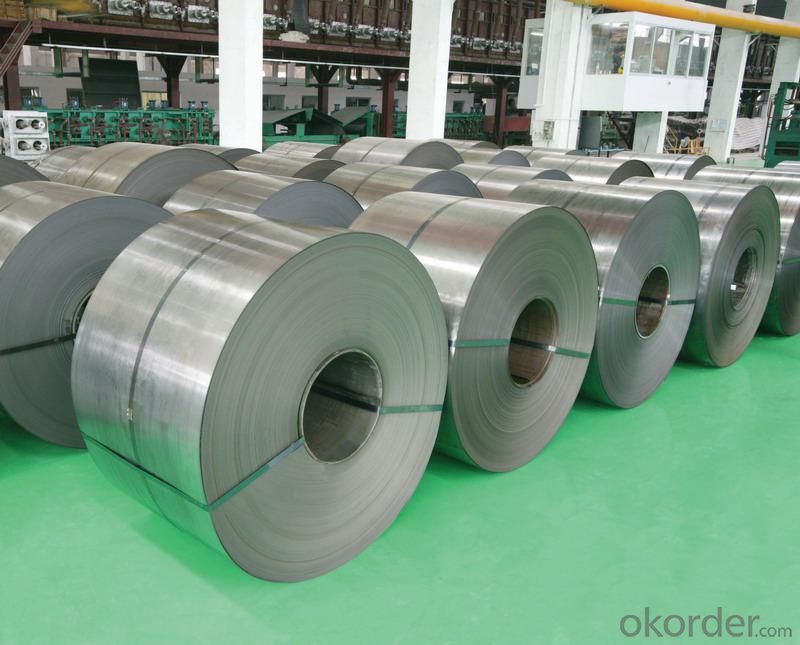
4.Cold Rolled Steel Specification
Standard:AISI,ASTM,DIN,GB,JIS,JIS G3302 ASTM 653M EN10142
Grade: Q195~Q345
Thickness: 0.16mm~1.5mm,0.16-1.5mm
Width: 1250,600-1250mm
Coil weight:3-12 MT
Coil ID:508/610mm
Chemical composition:
C | Si | Mn | Cr | Ni | P | S |
0.150 | 0.476 | 11.231 | 12.50 | 0.900 | 0.039 | 0.010
|
5.FAQ of Cold Rolled Steel
We have organized several common questions for our clients,may help you sincerely:
1.How about your company?
A world class manufacturer & supplier of castings forging in carbon steel and alloy steel,is one of the large-scale professional investment casting production bases in China,consisting of both casting foundry forging and machining factory. Annually more than 8000 tons Precision casting and forging parts are exported to markets in Europe,America and Japan. OEM casting and forging service available according to customer’s requirements.
2.How to guarantee the quality of the products?
We have established the international advanced quality management system,every link from raw material to final product we have strict quality test;We resolutely put an end to unqualified products flowing into the market. At the same time, we will provide necessary follow-up service assurance.
3. How long can we receive the product after purchase?
Usually within thirty working days after receiving buyer’s advance payment or LC. We will arrange the factory manufacturing as soon as possible. The cargo readiness usually takes 15-25 days, but the shipment will depend on the vessel situation.
- Q: How do steel coils contribute to the construction industry?
- Steel coils play a crucial role in the construction industry by serving as the primary raw material for a wide range of applications. These coils are used in the construction of buildings, bridges, highways, and other infrastructure projects. They are used to manufacture various structural components, including beams, columns, and trusses, providing strength, durability, and stability to the structures. Steel coils also contribute to the industry by enabling the fabrication of roofing and siding materials, reinforcing bars, and other construction elements. Their versatility, high strength-to-weight ratio, and resistance to corrosion make steel coils an essential resource for the construction industry.
- Q: I want to buy a chain that will last a long time and that i can wear ALL the time.What are the disadvantages to stainless steel jewelry?Does it look as good as silver?Is there much diference in apperance?
- All of I know are stainless steel advantages. it won't stain, corrode, or rust easily. And it keeps its good-looking shine even for many years.
- Q: i cant find this stuff about steel:conductivitystrengthcorrosion resistancecommon applicationsif you know of any interesting facts, i could use those 2!thanx!
- The strength and corrosion resistance depends on the mix. Pure steel is pure iron plus 6% pure carbon. It is the carbon molecules that give it a tough crystallized strength. Pure iron is wrought iron and you can bend that with your hands. Strength also depends on the shape of the beam the most common steel beam is the W flange more commonly called the I beam. That is because the strength of the ‘I’ beam is just a little bit less than if the entire I beam was filled in; however the weight and material savings is huge. Steel itself has no corrosion resistance and is often given a zinc coating just to resist oxidization. Manganese, vanadium and tungsten are just some of the other elements added to improve the steel.
- Q: Is steel easier to weld?Which is more brittle/less flexible?
- I can't weld steel to aluminum, and generally speaking I'd say the answer is no, however, there are some special procedures that can make a metallic bond between steel and aluminum, it can be done with explosive welding. A lot of multi-ply cookware is made with aluminum sandwiched between stainless steel, there is so much of it that I imagine there is another way besides explosives, but I don't know what. In any case it is not a normal workshop procedure. Steel is often considerably easier to weld, but it depends on the alloy. some steels are difficult to weld and some aluminum alloys are fairly easy, but on the average steel is easier. as far as brittle/ flexible it again depend on the alloy, some steels are less brittle than some aluminum alloys and the other way around. Steel does have a higher modulus of elasticity, so for a given size steel is stiffer, but that is for elastic deformation, for plastic deformation steel often has a higher yield strength, but some of the more exotic aluminum alloys can be stronger than low grades of steel.
- Q: I understand that Stainless Steel is a low carbon steel having minimum 10.5% chromium content in it there r 60 different type of stainless steel. Kindly informa) Is this info correct?????b) Which stainless steel can get rusted or can have superficial rust????
- Stainless steel is a generic term for a whole range (there are more than 60 types) of Fe-Cr alloys. They all contain some amount of C and some alloys include a good number of other alloying elements. In almost all cases, the materials have corrosion resistance due the Cr atoms that are in solid solution with the Fe matrix. Under corrosive conditions, the Cr forms a thin tight coherent layer of Cr-oxide. This Cr oxide coating prevents further corrosion so long as it is not chemically or physically removed. If the SS has been subject to mechanical abrasion, the corrosion resistance can sometimes be restored by a light exposure to nitric acid which passivates the surface, restoring the Cr-oxide layer. The carbon content is an important factor in corrosion preformance but so is the heat treatment. Under the wrong conditions and in different environments, all SSs can rust. One of the most common corrosion problems is sensitization which occurs in the heat affect zone (HAZ) around welds. If the C content is high enough and the heat is high enough, the Cr atoms in solid solution form Cr-carbides and are no longer available to form a protective Cr-oxide. The corrosion resistance can be restored by appropriate heat treatment.
- Q: Will any modified choke or improved Cylinder choke be safe to use with steel shot? If these are safe, which is better for duck or goose hunting?
- Best Choke For Steel Shot
- Q: Two different shaving razors I'm looking to buy have different specs. in terms of the metals used for the blade; one being 1045 surgical stainless steel, the other 440 stainless (not sure if its A B or C, but probably 440A or 440B because it's not specified). So which one is better for the intended use as a shaving razor?
- 1045 stainless is better
- Q: How are steel coils used in the manufacturing of defense equipment?
- Steel coils are used in the manufacturing of defense equipment as they provide the necessary strength, durability, and flexibility required for various applications. These coils are often processed and shaped into components such as armor plates, vehicle frames, ammunition casings, and other structural parts. The high tensile strength and resistance to impact and deformation make steel coils an ideal material for protecting military personnel and assets, ensuring the reliability and effectiveness of defense equipment.
- Q: What is the process of uncoiling a steel coil?
- The process of uncoiling a steel coil involves using specialized equipment, such as a decoiler or uncoiler machine, that is designed to carefully unwind the tightly wound coil. The coil is typically mounted onto the machine's mandrel, which holds it securely in place. As the machine rotates, the coil starts to unwind, with the outer layers gradually releasing and straightening out. This process continues until the entire coil is uncoiled, resulting in a flat and straight steel sheet or strip ready for further processing or use in various applications.
- Q: How are steel coils used in the production of metal bridges?
- Steel coils are an essential component in the production of metal bridges due to their versatility, strength, and durability. These coils are typically made from high-quality steel alloys, which provide the necessary structural integrity required for constructing bridges. The first step in using steel coils for bridge production is processing them through a series of manufacturing techniques. The coils are uncoiled and straightened to remove any distortions or bends. Then, they are cut into precise lengths according to the bridge's design specifications. Once the steel coils have been processed, they are transformed into various structural components used in bridge construction. These components include beams, girders, trusses, and plates. Beams and girders are typically used for the main support structure of the bridge, while trusses provide additional support and stability. Plates are used for the bridge deck, providing the surface on which vehicles and pedestrians travel. Steel coils also play a crucial role in the fabrication of bridge connections and joints. These connections are essential for transmitting loads and forces throughout the bridge structure, ensuring its stability and safety. Steel coils are used to create various connection elements such as bolts, nuts, washers, and welded sections. Furthermore, steel coils are commonly employed in the production of bridge reinforcements. Reinforcing steel bars, also known as rebars, are manufactured from steel coils. These rebars are used to strengthen concrete elements within the bridge, such as columns, piers, and abutments, enhancing their load-bearing capacity and resistance to bending and tension. In addition to their structural applications, steel coils are also used for protective coatings on metal bridges. Coils can be coated with specialized materials such as zinc, epoxy, or paint to prevent corrosion and increase the lifespan of the bridge. These coatings help to maintain the structural integrity of the bridge, especially in harsh environments where exposure to moisture, chemicals, and weathering factors is high. Overall, steel coils serve as the backbone of metal bridge production. They are transformed into various structural components, connections, reinforcements, and protective coatings that ensure the strength, durability, and longevity of the bridge.
Send your message to us
Cold Rolled Steel Coil with First Class Quality and Best Qaulity
- Loading Port:
- Shanghai
- Payment Terms:
- TT OR LC
- Min Order Qty:
- 500 m.t.
- Supply Capability:
- 20000 m.t./month
OKorder Service Pledge
OKorder Financial Service
Similar products
Hot products
Hot Searches
Related keywords
